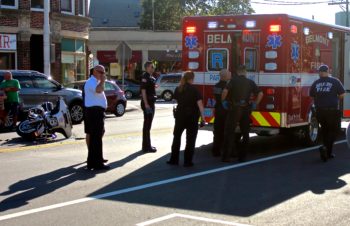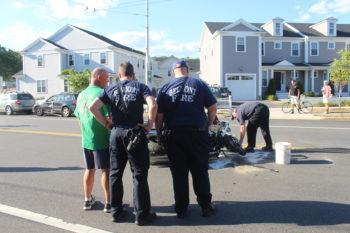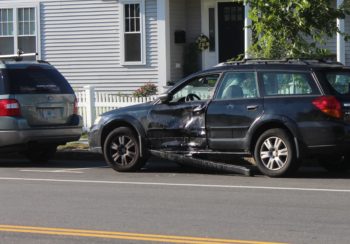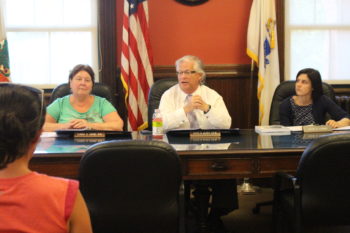Photo: A rendering that is one the Belmont Books website.
It’s official: Belmont Center will be home to a new bookstore early next year.
According to the husband and wife business team of Chris Abouzeid and Kathy Crowley (“Your friendly neighborhood booksellers”) the couple has signed a lease with owner Locatelli Properties for a reported 4,000 sq.-ft. portion of the renovated building that once housed first Filene’s and then Macy’s for more than 70 years.
The new venture will join Foodies Urban Market in the building. The market is expected to open before Thanksgiving.
The name of their store: Belmont Books. While an official opening day has not been announced, the Cedar Road residents said: “[o]ur target date for opening is March 2017.”
It marks the return of a bookseller to Belmont Center after nearly seven years when Charlesbank Bookshop, part of the B. Dalton division of Barnes & Noble, shut its doors in December 2009.
The bookstore will occupy two floors along Leonard Street, according to a press release issued on Aug. 16, “in that quaint section with the white façade and lovely molding that just screams ‘Put an awesome store in here!'” said the release.
“So when you’re looking at the building, those big, wide windows up above? Those are ours. Can you say ‘reading room with a view?'”
As for the owners, Abouzeit is an author – he wrote the young adult fantasy novel “Anatopsis” – and bookseller at Porter Square Books in Cambridge and Crowley is a primary care physician at Boston Medical Center in Boston’s South End and an assistant professor of medicine at Boston University’s medical school. It is reported that she is writing a mystery novel.
The press release puts to a close the not-so-secret attempts by the couple to bring a bookstore to Belmont Center. Earlier this year the proprietors put online a website and a Twitter account under the “Belmont Books” moniker. Periodically, an update would be issued on “ongoing negotiations” with Locatelli but not much else.
On June 20, under the headline “Bookstore coming to Belmont, Mass. in 2017”, Publishers Weekly wrote about the couple, their plans and what to expect at the new store.
Publishers Weekly said the store “will have a strong children’s, science fiction and fantasy, and mystery sections. The store will also carry bestsellers, classics, and cookbooks, among other book sections, along with cards, games, and gifts. Also, it will have a coffee shop that serves pastries and lunch.”




